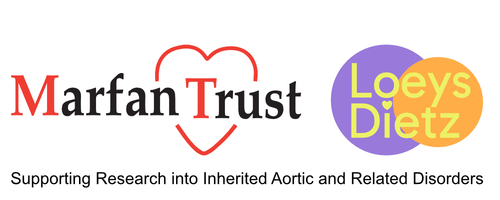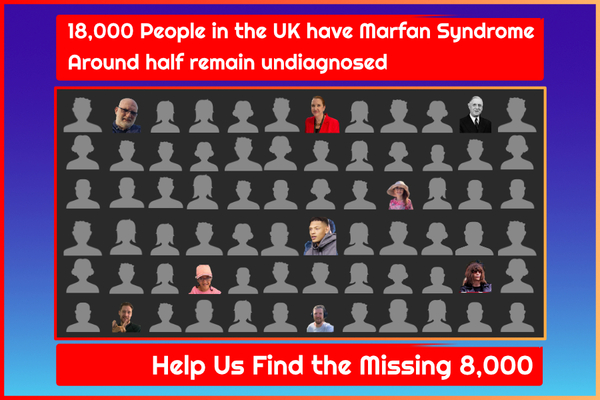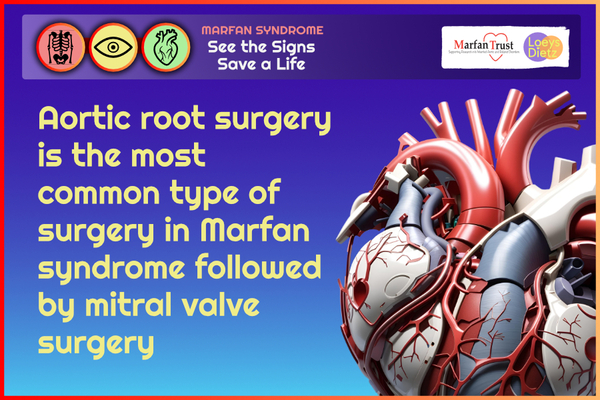A diagnosis can leave you reeling, marooned in a mystifying and worrying new world of chronic medical conditions. A doctor can help you navigate this world, referring you appropriately and anticipating problems accordingly. Sadly, when diagnosed with a condition as complex as MFS, some supporters find their doctor wanting. Some even find their roles reversed with the patient educating the doctor as Lucy describes in her brilliant blog for Marfan Awareness Month which will perhaps resonate with many.
By Lucy-Alexandra Atkinson
Hi everyone, it's Marfan Syndrome Awareness Month, and I wanted to write a blog about why I think medical professionals should be made more aware of the condition. As a Marfan patient myself, I think it's fair to say I've seen a lot of doctors over the years. However, I don't think I've ever come across one whose understanding of the condition has been extensive.

They usually know what it means and what the typical signs are, which is great. But that's as far as it goes. I've seen a few who have been fascinated by my hands, feet, loose joints and slender build, but that's not good enough if they don't know anything about the damage that faulty connective tissue can do. It's usually down to me, the patient, to educate them. And unfortunately, this seems to be the case for most people in the Marfan community. We have new members joining the Marfan support groups each week because they've lost a relative to an undetected Marfan related heart problem, and that's why it is vitally important for us to encourage all healthcare workers to be more 'Marfan aware'. We can't keep letting it slip under the radar. The condition needs to become common knowledge among General practitioners and all medics. Imagine the lives that could be saved if more professionals knew how to spot the signs?
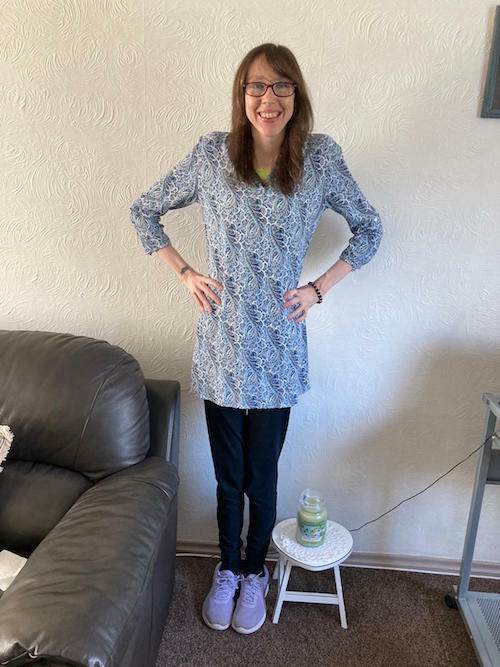
From my own personal perspective though, it seems like even the ones who are aware of Marfan syndrome don't know nearly enough about the condition. Most of my doctors have heard of it and know the basics, but they haven't a clue how to help me manage the various medical ailments that I live with as a result of Marfan syndrome, and I get the feeling that I'm not the only one. Many of the friends I've met through Marfan syndrome also say they're not receiving enough support from their doctors when it comes to their rare health condition. And this is simply because their knowledge isn't sufficient enough. I don't think GP's or consultant have been educated enough to fully understand what our daily lives are like with chronic pain, joint problems, heart abnormalities, and the many other challenges that come with it.
And because of this, because of their sheer lack of knowledge and awareness, patients like me are struggling to understand, never mind cope with their health condition alone. For example, I have a number of Marfan related ailments/illnesses that I don't altogether understand, but I can't turn to my doctors to ask them to explain it, as they don't know anymore about it than I do. I'm not saying this is the case among all healthcare professionals. I'm sure some are well informed. I do have 1 or 2 consultants who seem like they've done their research. But, the general consensus is that patients with Marfan syndrome don't have a doctor who has a good comprehension of what they're going through. And I agree. I don't have anyone to turn to help me make sense of my connective tissue disorder.
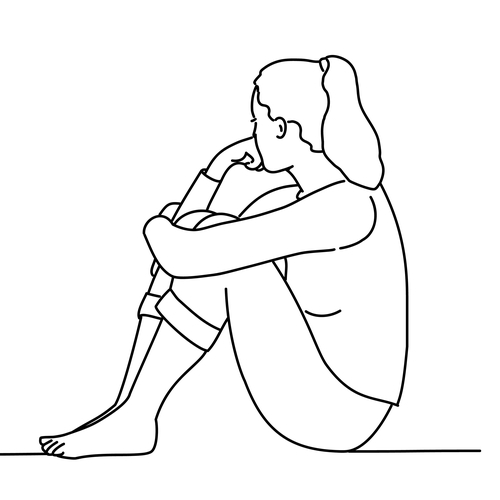
It's the same for newly diagnosed patients. They feel like they've been given this devastating diagnosis, and then left to do their own research. Marfan syndrome awareness is shocking in general, but our doctors should be able to supply us with the relevant information. But usually, they can't do that because they aren't well informed themselves. I really hope that by speaking out, people like me can change that. So that one day, Marfan syndrome becomes common knowledge across the medical field. It would be a huge relief to me, as well as others if our doctors knew more about Marfan. If they did, then maybe they could provide us with better treatment options for the chronic pain that we live with. As at the moment, they don't seem to have a clue how to treat the musculoskeletal manifestations. I'm sure many more patients will have their own reasons for why they think it's important to raise awareness of Marfan syndrome, but for me, it's about saving lives, being able to better inform patients, and being able to offer us better treatment options.
If inspired, please share your stories with us here
Head to our Marfan Awareness Month 2022 page to find out more
